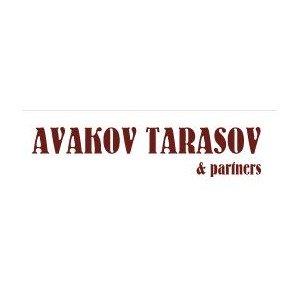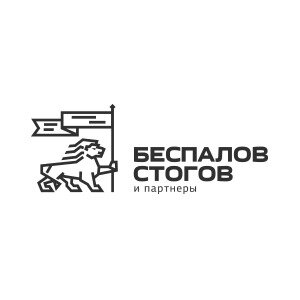Best Nonprofit & Charitable Organizations Lawyers in Russia
Share your needs with us, get contacted by law firms.
Free. Takes 2 min.
Or refine your search by selecting a city:
List of the best lawyers in Russia
About Nonprofit & Charitable Organizations Law in Russia
In Russia, nonprofit organizations (NPOs) are legal entities that do not operate for the purpose of distributing profits among their members. They are involved in a wide range of activities including cultural, educational, social, and charitable work. Charitable organizations are a specific type of NPO, aimed primarily at improving public welfare through volunteer initiatives and community-focused projects.
The legal framework governing these entities is primarily laid out in the Civil Code of the Russian Federation, the Federal Law on Nonprofit Organizations, as well as other related legislative acts and regulations. These laws detail the processes for registration, operation, reporting requirements, and the overall regulatory environment for nonprofits and charitable organizations in Russia.
Why You May Need a Lawyer
Managing a nonprofit or charitable organization in Russia involves navigating a complex legal landscape. Here are some common scenarios where you may require legal assistance:
- Setting up and registering the organization in compliance with Russian laws.
- Understanding and meeting reporting and auditing requirements.
- Handling issues related to taxation, VAT, and other fiscal obligations.
- Navigating the re-registration process during changes in organizational structure or objectives.
- Ensuring compliance with anti-terror legislation applicable to foreign-funded organizations.
- Protecting intellectual property and handling data protection obligations.
- Resolving disputes with employees, volunteers, or external parties.
- Dealing with potential investigations by governmental bodies.
Local Laws Overview
Here are some key aspects of Russian laws relevant to nonprofit and charitable organizations:
- Registration: NPOs must register with the Ministry of Justice. The process involves submitting a range of documents including the organization's charter and information about its founders.
- Reporting: Russian NPOs are required to submit annual reports, detailing their financial activities and adherence to their stated objectives. Charitable organizations have additional obligations to disclose donation-related details.
- Taxation: NPOs may be eligible for certain tax exemptions, but they must adhere to strict criteria to maintain these exemptions.
- Foreign Influence: Organizations receiving foreign funding may be subject to special reporting requirements and operational restrictions under "foreign agent" laws.
- Governance: There are detailed legal requirements concerning the governance, roles, and responsibilities of directors and board members of NPOs.
Frequently Asked Questions
What is a nonprofit organization in Russia?
A nonprofit organization in Russia is a legal entity established for purposes other than making a profit, focusing on social, cultural, educational, scientific, or charitable activities.
How do I register a nonprofit in Russia?
Registration involves submitting requisite documentation to the Ministry of Justice, including the organization's charter and details about its founding members.
Are there tax exemptions available for NPOs in Russia?
Yes, NPOs can benefit from various tax exemptions, depending on their activities, provided they fully comply with the legal requirements for maintaining such status.
What are the reporting requirements for a charitable organization?
Charitable organizations must submit detailed annual reports on their financial activities, sources of donations, and how these donations are used.
Can I set up a foreign nonprofit in Russia?
Foreign entities can establish Russian branches or subsidiaries of their nonprofit, but these will be subject to additional scrutiny and must adhere to Russian laws.
What happens if an NPO is labeled a "foreign agent"?
NPOs labeled as "foreign agents" face additional reporting requirements and may experience operational restrictions. This status is applied to those receiving foreign funding and engaging in political activity.
Is there any restriction on political activities by NPOs?
Yes, nonprofit organizations in Russia are generally restricted from engaging in political activities unless they are specifically registered for such purposes.
How can a nonprofit lose its registered status?
An NPO can lose its status through voluntary dissolution or involuntary liquidation due to failure to comply with legal requirements, including failure to report properly.
Can individuals or businesses claim tax deductions on donations to nonprofits?
Yes, donations to qualified nonprofits can lead to tax deductions for individuals or business entities, subject to limitations and legal compliance.
Are there any special permits required for fundraising activities?
Fundraising activities, particularly public campaigns, may require additional permits or registration, depending on the scope and nature of the efforts.
Additional Resources
For more information or assistance, consider consulting the following resources:
- The Ministry of Justice of the Russian Federation, which oversees the registration and regulation of NPOs.
- The Federal Tax Service for guidance on taxation issues related to nonprofits.
- Non-Governmental Organizations (NGO) partnerships and alliances, which often offer resources and support for setting up and managing successful NPOs.
- Legal service providers specializing in nonprofit law.
Next Steps
If you require legal assistance in establishing or managing a nonprofit or charitable organization in Russia, consider the following steps:
- Identify the specific legal issues or questions you have concerning your organization.
- Contact a lawyer or law firm specializing in nonprofit and charitable organization law in Russia.
- Prepare all relevant documents and information before your consultation to ensure efficient and effective legal advice.
- Stay informed and up-to-date with any changes in legislation that may affect your organization.
Lawzana helps you find the best lawyers and law firms in Russia through a curated and pre-screened list of qualified legal professionals. Our platform offers rankings and detailed profiles of attorneys and law firms, allowing you to compare based on practice areas, including Nonprofit & Charitable Organizations, experience, and client feedback.
Each profile includes a description of the firm's areas of practice, client reviews, team members and partners, year of establishment, spoken languages, office locations, contact information, social media presence, and any published articles or resources. Most firms on our platform speak English and are experienced in both local and international legal matters.
Get a quote from top-rated law firms in Russia — quickly, securely, and without unnecessary hassle.
Disclaimer:
The information provided on this page is for general informational purposes only and does not constitute legal advice. While we strive to ensure the accuracy and relevance of the content, legal information may change over time, and interpretations of the law can vary. You should always consult with a qualified legal professional for advice specific to your situation.
We disclaim all liability for actions taken or not taken based on the content of this page. If you believe any information is incorrect or outdated, please contact us, and we will review and update it where appropriate.
Browse nonprofit & charitable organizations law firms by city in Russia
Refine your search by selecting a city.













